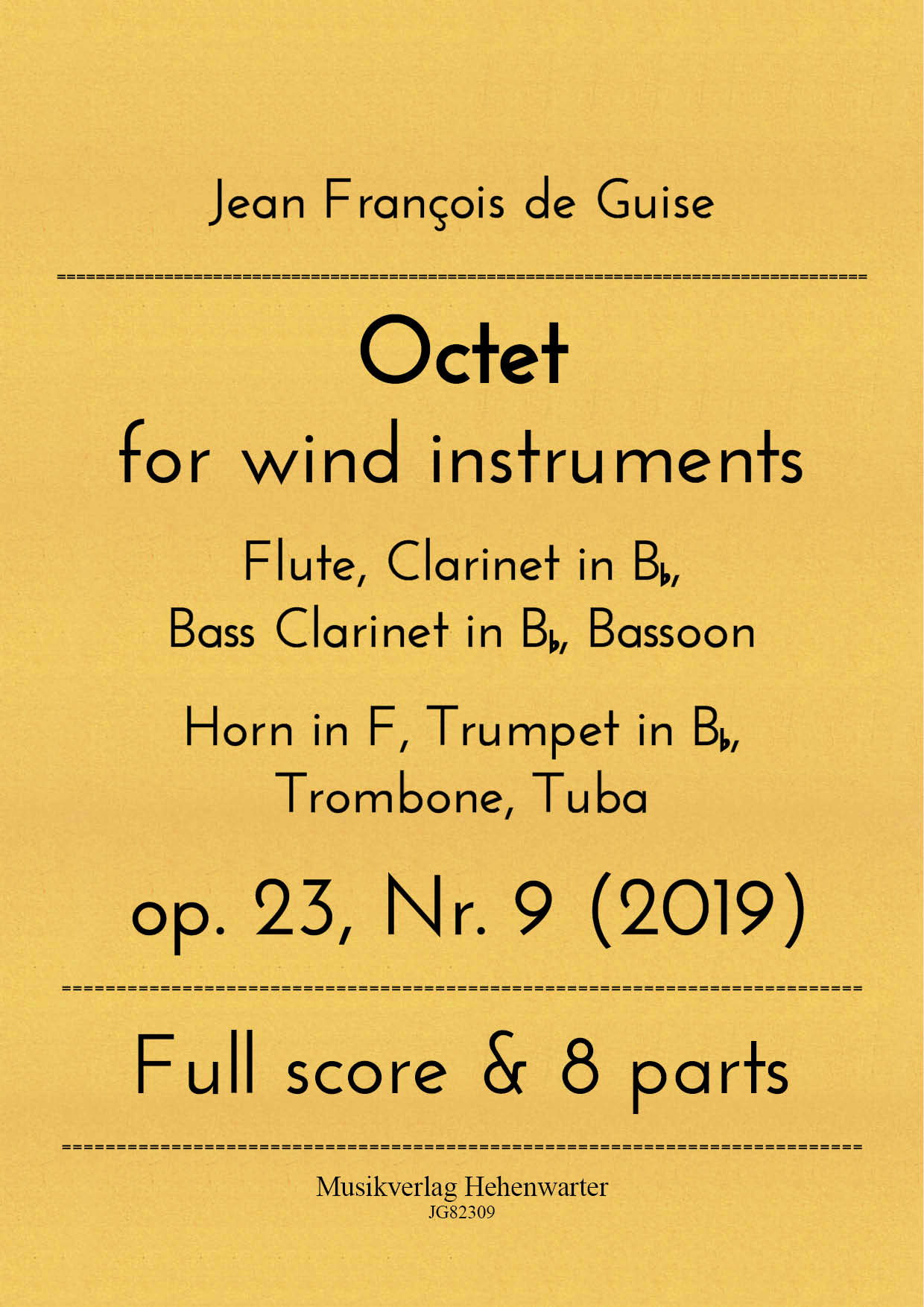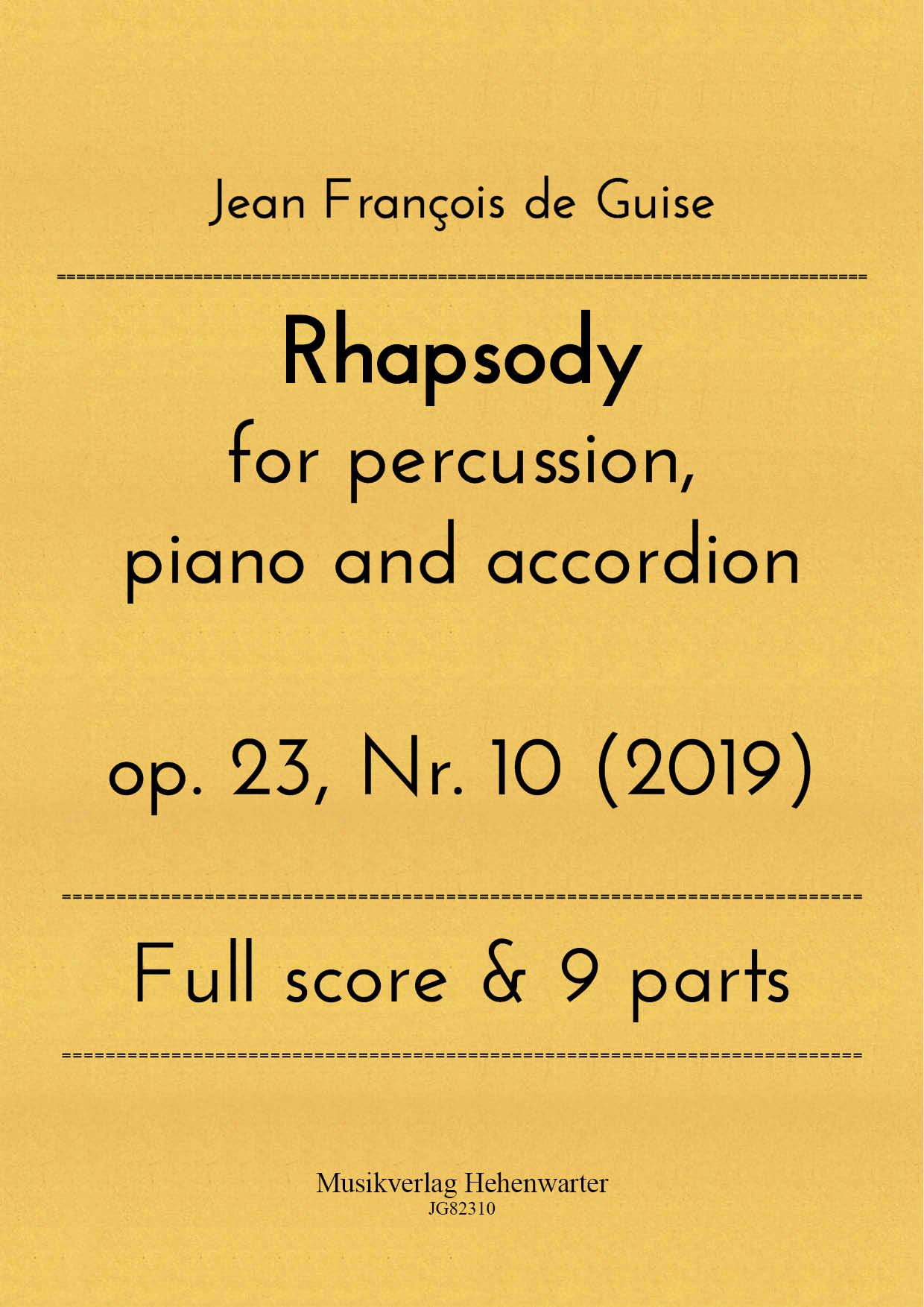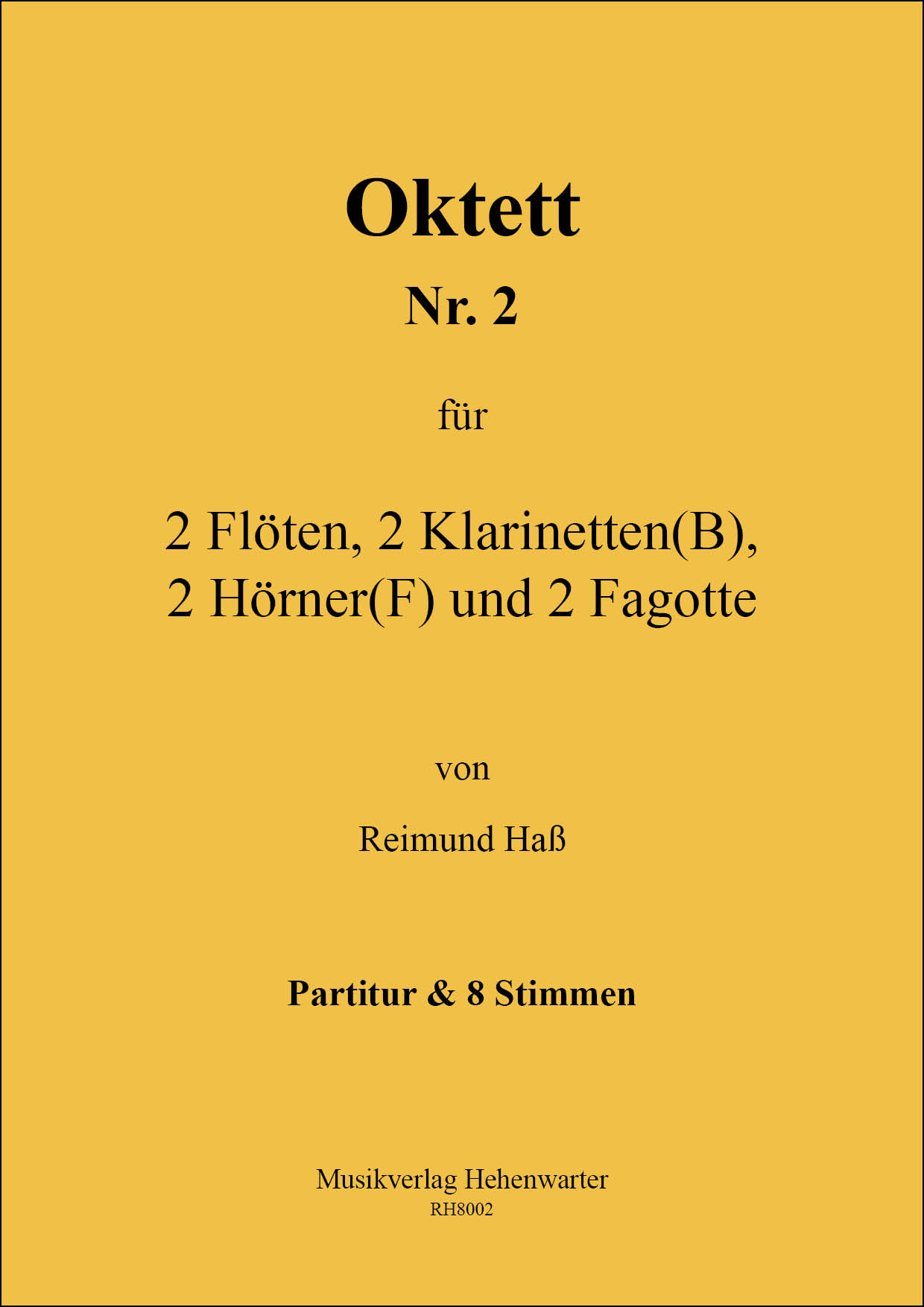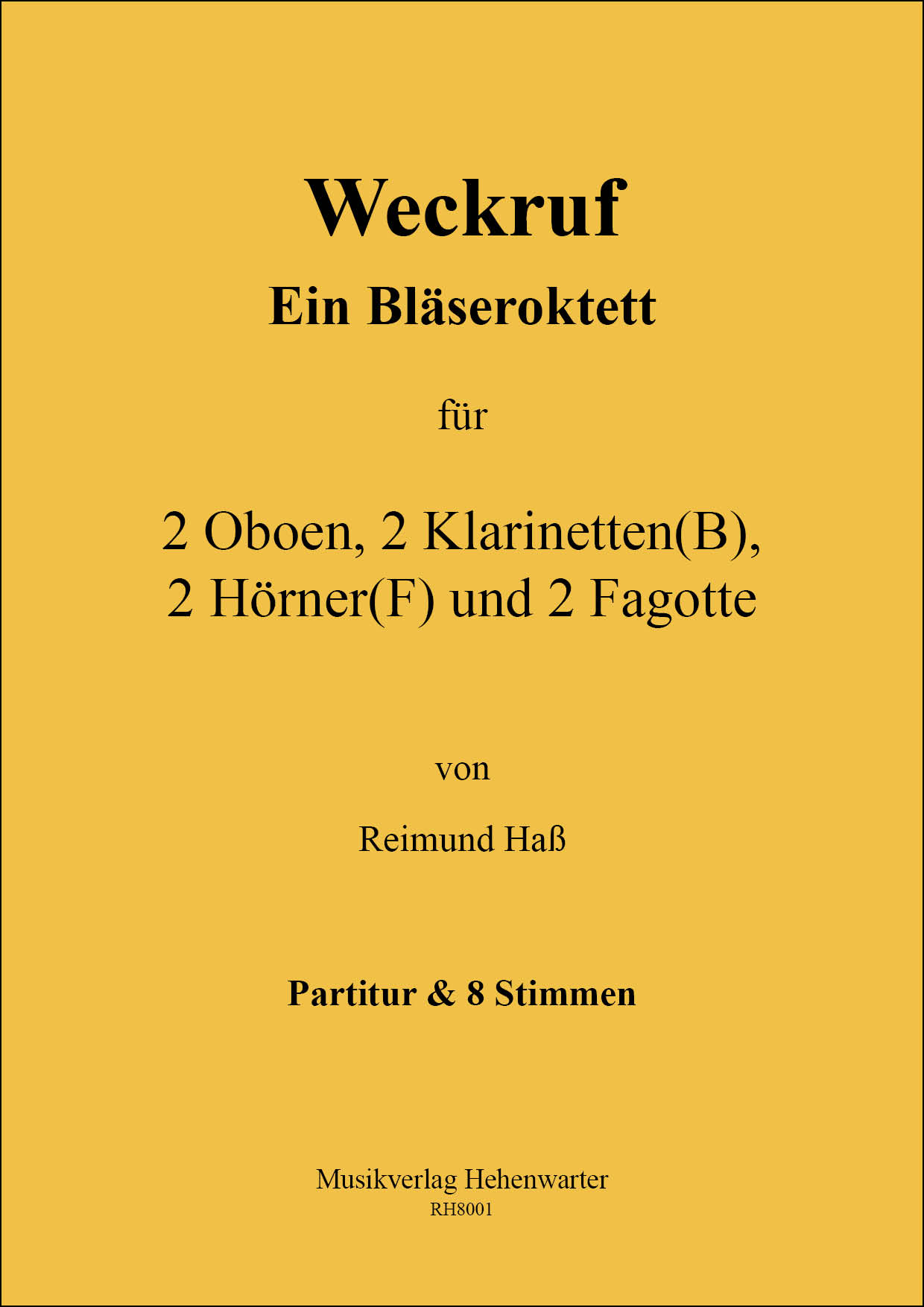- Composers
- Instrumentations
- Folk music
- The diatonic violin - UNDER CONSTRUCTION !!
- Klezmer music
- 21st century
- Audio
- Early music from the 18th century.
Filter products
–
Guise, Jean François de – Octet for Strings op. 23, No. 3
€59.00*
Guise Jean François deOctet for wind instruments
Op. 23, No.9
The mixture of woodwind and brass instruments is rather rare in classical chamber music. At most, this instrumentation can be found in symphonic wind music.
Jean François de Guise chose this formation because here he had a wide range of possibilities to draw a play of dominance and subordination.
Everyone may believe that the brass is ostensibly powerful, but that many passages, dominated by the wood, are subordinate and only gain audibility through rhythmic movement, seems less evident.
This octet makes audible what is often lost in modern orchestral music or is only filler. It creates the space for a music that otherwise remains hidden.
Flute, Clarinet in Bb, Bass Clarinet in Bb, Bassoon, Horn in F, Trumpet in Bb, Trombone, Tuba
score and parts / 83 pages
Guise, Jean François de – Rhapsody for percussion, piano and accordion op. 23, No. 10
€61.00*
Guise Jean François deRhapsody for percussion, piano and accordionOp. 23, No 10 (2019)Rhapsody for percussion, piano and accordion, created in 2019, is conceptually a nonet. However, at least one percussionist is required who is able to play the rapid, rhythmic structures almost simultaneously on several instruments.The choice of the accordion as one of the main instruments is still uncommon in classical contemporary music, at least when one moves outside of “tango” or similar music influenced by Latin America.Jean François de Guise presents a piece here that is sure to surprise, as the title inevitably leads to associations with works with the same initial name.The logic of the title becomes evident if the term “rhapsody” is taken literally.Because an essential feature of a rhapsody is its loosely connected musical themes, which almost seem like incoherent fleeting thoughts, i.e. not necessarily based on one another or referring to one another.It is impressive to hear again and again that this work nevertheless follows a continuous “plan”. The interplay creates a togetherness that is due to the accordion, as a connecting but still soloist instrument, which ultimately turns the work into a small “solo concert” for the accordion. 4 drums, xylophone, marimba, vibraphone, piano, accordion Score and parts / 87 pages
Haß, Reimund - Octet No. 2
€34.00*
Haß, ReimundOctet No. 2for 2 flutes, 2 clarinets (B-flat), 2 horns (F) and 2 bassoonsGrowing up in a Brandenburg village, east of Berlin, music has always played a major role for me.Piano lessons and music studies, during which I was trained as a horn player, were the result.After retiring, I returned to music theory and began to compose.Score & parts / 48 pages
Haß, Reimund - Wake-up call, a wind octet
€35.00*
Haß, ReimundWake up callA wind octetGrowing up in a Brandenburg village, east of Berlin, music has always played a major role for me.Piano lessons and music studies, during which I was trained as a horn player, were the result.After retiring, I returned to music theory and began to compose.I wrote the “wake-up call” in 2018, a time that can take such a thing.Everyone can follow my musical ideas if they are ready.Score & parts / 50 pages




